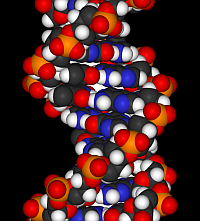Physicians and researchers at the Mayo Clinic in Scottsdale, Arizona and the Translational Genomics Research Institute in Phoenix successfully completed sequencing a single patient’s normal and cancer cells. The team says this is among the first whole genome sequencing performed for the medical care of a specific cancer patient.
The genomic sequencing of tumor and normal cells took place with a pancreatic cancer patient at the Mayo Clinic as part of a clinical research project. By comparing the tumor DNA to the patient’s normal DNA, researchers found mutations that helped doctors plan the patient’s next treatment. This case of using definable genetic changes, such as these mutations that could then be linked to specific treatments, can lead to processes that result in individualizing cancer care.
Whole genome sequencing looks at the entire genome, giving scientists and clinicians a comprehensive view of the potential genetic origins of disease. Other sequencing techniques — such as genome-wide association studies — are less expensive tests, but examine only selected portions of DNA.
Cancer is a disease often rooted in genetic mutations and can change a person’s DNA. Performing genomic sequencing on cancerous tumors may provide clinicians with information to treat cancer more precisely, especially for patients who are resistant to traditional treatments.
At this point, say the researchers, costs for whole genome sequencing — that requires expensive technology and and highly-skilled specialists — are still significant. Once processes are developed and regularly implemented, the long-term costs of sequencing are expected to drop.
Read more: Genetic Signature Validated for Early-Stage Colon Cancer
* * *


 RSS - Posts
RSS - Posts
[…] Read more: Whole Genome Sequencing Advances for Cancer Diagnosis […]
[…] Read more: Whole Genome Sequencing Advances for Cancer Diagnosis […]
[…] Read more: Whole Genome Sequencing Advances for Cancer Diagnosis […]